I remember the day when the meaning of "accessibility" was transformed for me.
I was sitting in a large, well-air-conditioned room in Auckland University's flash Business School, just after it opened and well before my own time at university. I had agreed to assist a graduate student with his research, testing out the screen-reader accessibility of online course-management system Moodle.
Screenreaders are essentially synthesised speech programmes that read out whatever is in focus on the screen, and which you generally operate with keyboard commands. The screenreader in question was called JAWS, and we'll call the student Raj.
Raj told me I would need to complete a series of specific tasks on Moodle with JAWS, and rate how easy or difficult I found each one when I'd finished it. I begun with no trouble. The gods of Moodle were on their best behaviour and I'd been spitting out a bunch of "easy" and "very easy" accessibility ratings until I came to the task of uploading an assignment. I expected this to go to plan also, but it turned out that it wasn't remotely obvious where I should press enter to begin the upload process. There were four or five places I had identified to have a stab at, and I would spend some time exploring the screen after each in case the upload dialog was hiding mysteriously out of JAWS' reach.
I was about to embark on attempt number four when Raj muttered and scribbled on his notepad "not accessible".
"No, hang on ..." I replied distractedly. "I might have it now, just a sec".
I was right about having it now; fourth try lucky.
I rated that task "difficult". I figured that the procedure itself was a bit slow and was not remotely obvious, but once it was committed to memory, it worked well enough. "That task was not accessible, though", Raj insisted. "If it was accessible, it would not have taken you four tries and five minutes to work out something that is very obvious looking at the screen. If there was a nice clear 'upload file' button for JAWS to find which worked as expected, you would have gotten it in a matter of seconds".
At that moment, the penny dropped. Raj was right. Uploading an assignment on Moodle, in that trial, was not accessible. It was merely "tolerable when necessary".
It is not tolerability, but accessibility that I strive for when I advocate, and I have written before about how important it is to approach accessibility advocacy from many angles, whether it be DPOs working alongside product manufacturers or airlines, social enterprise working alongside businesses, or the disability sector coming together to urge the government to pass accessibility legislation.
In my books, a building is "tolerable when necessary" if the only wheelchair entrance requires you to go on a back-alley detour. A large, noisy event where some autistic people would only narrowly avoid a melt-down from sensory overload would equally qualify as "tolerable when necessary". A building with no flashing light fire-alarm system that requires deaf people to ensure they are never alone is "tolerable when necessary".
To me, accessibility is universal design, or designing for everyone, in action.
For some reason, our New Zealand Disability Strategy doesn't see it this way and chooses to define "accessible design" in line with my version of "tolerable when necessary". But as I see it, the word "accessibility" is firmly embedded in the lexicon of the disability sector, and we run into trouble when we set the bar too low. After all, social enterprise Be Accessible is called "Be Accessible" and not "Be Tolerable when Necessary" for good reason.
This encounter with Raj taught me that it's not merely acceptable to push past "tolerable when necessary"; it's essential.
A de facto decision to tolerate the tolerable every time is internalised ableism in action.
However unintentional, however systemically caused, however much we must pick our battles, we as disabled people and allies do ourselves no favours at all when we disqualify all spaces, services and sites from our improvement radars so long as they're "tolerable when necessary".
Next week, I have the privilege of delivering this open letter to the new Minister for Disability Issues, Hon. Carmel Sepuloni. I'm working with the Blind Foundation, who are part of the Access Alliance, a group of twelve disability sector organisations calling for an Accessibility Act to be introduced in New Zealand. Social change tends to move so slowly you only occasionally wake up to it. But I hope that a "yes" to moving forward with an Accessibility Act will be a "yes" to creating a solid foundation for accelerating accessible change in New Zealand.
*Image: Aine talking to the camera at the launch of the Access Matters Open Letter


